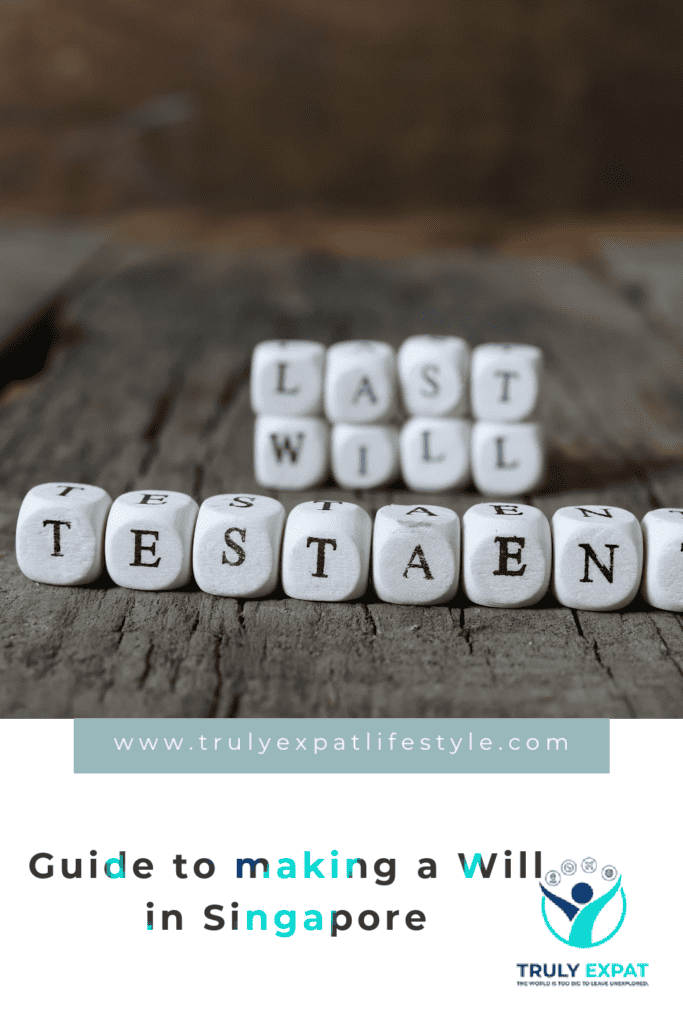Are you looking to protect your loved ones and ensure your wishes are respected after you are gone? Writing a Will is one of the most important things you can do. On the Truly Expat Podcast, we spoke with Mark Reeve to from St James Place to discuss setting up a will in Singapore.
A Will is a legal document that outlines how you want your assets distributed. By taking the time to create a Will, you can prevent potential legal battles and ensure that your loved ones are taken care of. Writing a Will is especially crucial for expats with assets in multiple countries who might face different legal systems. This guide to making a will in Singapore will include the following:
– When it is essential to have a Will in Singapore
– Whether you need to have more than one Will
– Explain what a temporary guardianship means
– Where to go for more advice in Singapore
– What are some of the things you need to consider when writing a will
Living and Working in Singapore: Your Guide to the types of employment visas.
Table of Contents
Writing a Will in Singapore
When is it essential to have a will in Singapore?
Writing a Will is one of the most important things you can do. Doing so can help prevent potential legal battles and ensure that your loved ones are taken care of in the way you want. As an expat living in Singapore, having a Will in place as soon as possible is advisable. Having a Will in place is especially important if you have assets in Singapore or dependents living with you. It can ensure that your assets are distributed according to your wishes and that your family members are cared for. It is important to note that Singapore’s laws regarding Wills differ from those in other countries. So, seeking legal advice from a professional is recommended to ensure your Will is drafted correctly in Singapore.

Do you need to have more than one Will?
In general, it is not necessary to have more than one Will. However, there may be circumstances where it could be beneficial to have multiple Wills. For example, if you have assets in different countries, it may be easier to have a will for each country to ensure that your wishes are followed correctly. Speaking with a legal professional is essential to determine your situation’s best course of action. It will also depend on where the assets are and if the country has rules similar to or very different from those of Singapore.
What is a temporary guardianship?
In Singapore, temporary guardianship in a Will refers to the appointment of a person to care for a minor child or children for a specific period in the event of the parent’s absence. The temporary guardian is granted the legal authority to make decisions on behalf of the child. It is important to note that a temporary guardianship is not the same as a permanent guardianship, which would require a separate legal process.
What do you need to consider when writing a Will?
When writing a Will, there are some key things you should think about. Firstly, you must decide who you want to name as your executor, trustee, and guardian. An executor is responsible for carrying out the instructions in your Will, while a trustee is responsible for managing any trusts you set up. A guardian is responsible for taking care of any minor children you have.
The same person can take on all three roles, but it’s important to consider whether this is the best option. If the person you choose is not experienced in managing finances or caring for children, it may be better to select different people for each role.
Another essential consideration is who you want to leave your assets to. It would be best to decide on specific beneficiaries and how you want your assets divided among them. You should also consider any debts and how they will be paid off.

What is the difference between a living trust and a Will?
A living trust and a Will are two common estate planning tools for different purposes. A Will is a legal document that outlines how a person’s assets will be distributed after their passing. It goes into effect only after the person has passed away and the Will has gone through the probate process. On the other hand, a living trust is a legal document that holds a person’s assets during their lifetime and is managed by a trustee. The assets in a living trust can be distributed to beneficiaries immediately after the person’s death without going through probate. Also, a living trust can provide additional benefits such as incapacity planning and privacy.
What happens if you do not have a Will in Singapore as an expat?
If you are an expat in Singapore and pass away without a will, your assets will be distributed according to the Intestate Succession Act. This means that your assets will be divided among your surviving spouse, children, parents, and other relatives in a set order of priority. Your assets will go to the government if you have no surviving family members. It is important to note that the Intestate Succession Act may not reflect your wishes to distribute your assets.
How often do I need to update my Will?
You should consider updating your Will when there are significant changes in your life, such as getting married, having a child, or acquiring new assets. You may also want to update your Will if there are changes that affect your estate plan. Reviewing your Will every three to five years or whenever there is a significant life change is generally recommended.
What is a Bloodline Will?
A bloodline will is a type of Will designed to protect and keep family assets within the family bloodline. It usually involves leaving assets to direct descendants, such as children and grandchildren, rather than to other relatives or individuals outside of the family. A bloodline will ensure that family wealth and assets are preserved for future generations and not lost through inheritance taxes or other means. This type of Will can be helpful when a family has significant assets they want to pass down to their children and grandchildren while minimising the risk of these assets being lost to outside parties.

Where can you go for advice on writing a Will in Singapore?
Contact Mark Reeve on 9128725 from St James Place
Thanks for taking the time to read this article. I hope this post has given you the information you need. If you have any recommendations, tips or advice, I would love for you to share them in the comment section below!
This post may contain affiliate links, meaning we may receive a commission at no extra cost if you purchase through a link. Please see our full disclosure for further information.
Check out my Instagram page or join the Truly Expat Facebook group
Pin it for later!

You may also like
5 Expert Tips for Successful Wealth Management in 2024 and Beyond
Navigating Career Opportunities for Expats in a Foreign Country
Things you should know about moving your pet abroad

